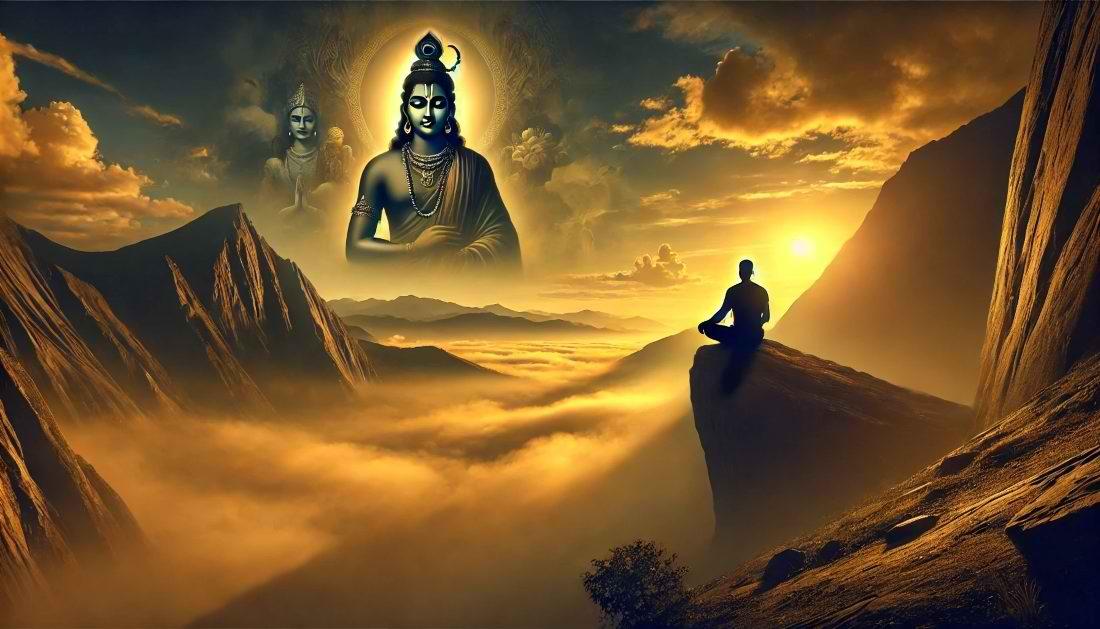People often fail to handle their emotions when the situations around them get volatile. It can also be said that emotions, overwhelmed to an uncontainable stage, can turn a situation extremely turbulent. An emotionally unstable or unpredictable person can take simple situations to their boiling point. He can be the source of an intense emotional commotion, a reason behind the tumultuous distraction that a family, a society or sometimes even countries undergo. The Mahabharata war witnessed such a situation, wherein, a feeble minded Arjuna awkwardly turned an occasion of valor and courage into a sheepish outburst of emotional insecurity. The battlefield remained grim and both sides of the enemies were ready to launch the war. But Arjuna failed to focus and his prejudiced view held the atmosphere ambiguous. And the Bhagavad Gita that Lord Krishna narrated to the warrior prince had an unprecedented essence of a thought which summarized what it meant to be maintaining the mind of a witness. A witness-like attitude, Lord Krishna said, would be the best to handle adversities. Though you are part of the evolving scenario, you are completely unaffected by its impact. Between the right and wrong tangled, is the present moment. So, it is unnecessary to become judgmental. The best thing is to cultivate the mindset of a witness, an observer. Buddha calls it the middle path.
Among the conflicting moments of life, to stay impartial is a challenge, or call it our reluctance. From family conflicts to the conflicts between countries, the most prominent stance that human beings have been known for is their one-sided approach. Reluctance is the reality, even for silly matters, we fail to remain impartial. But the Gita assiduously reminds us about our role in the larger periphery of the creation. Its depth and veracity, the Gita says, has been indescribable and we, mere microscopic elements in its enormous arrangement, rarely make an impact. The real drama begins when we appear on the world stage in this human body and mind. The mind is a bundle of thoughts which, with its power, can change the world. The role we have been assigned to play in the drama of life is unostentatious. The elegance of an actor should reflect throughout his acting. And the drama called life is to be lived with this witness attitude, so that you are never carried away by the response-acting of the other actor on the stage. You take adequate time to react or respond. You are composed and effectively address the necessity, immensity and complexity of the drama. Adi Sankaracharya came up with a beautiful philosophical thought that unraveled this complexity completely. Perfectly dispassionate but totally focused on the supreme, he says, the drama of life can be completed. He identifies the self as the pure consciousness and negates all usual identities that people get enmeshed in. Throughout the Nirvana Shatakam, one of the best expositions on the essence of non-dualism or Advaita, the seer recognizes the self beyond all physical and mental attributes. He continues to negate all usual attributes of identities like mind, intellect, ego and the different bodily constituents. According to him, our sense of being cannot be an expression of hatred nor attachment nor even greed or jealousy, nor is it virtue or sin nor even the dualities like joy and sorrow. He summarizes its verses with a repeated accentuation on the non-dual existence of the self- the pure consciousness.

